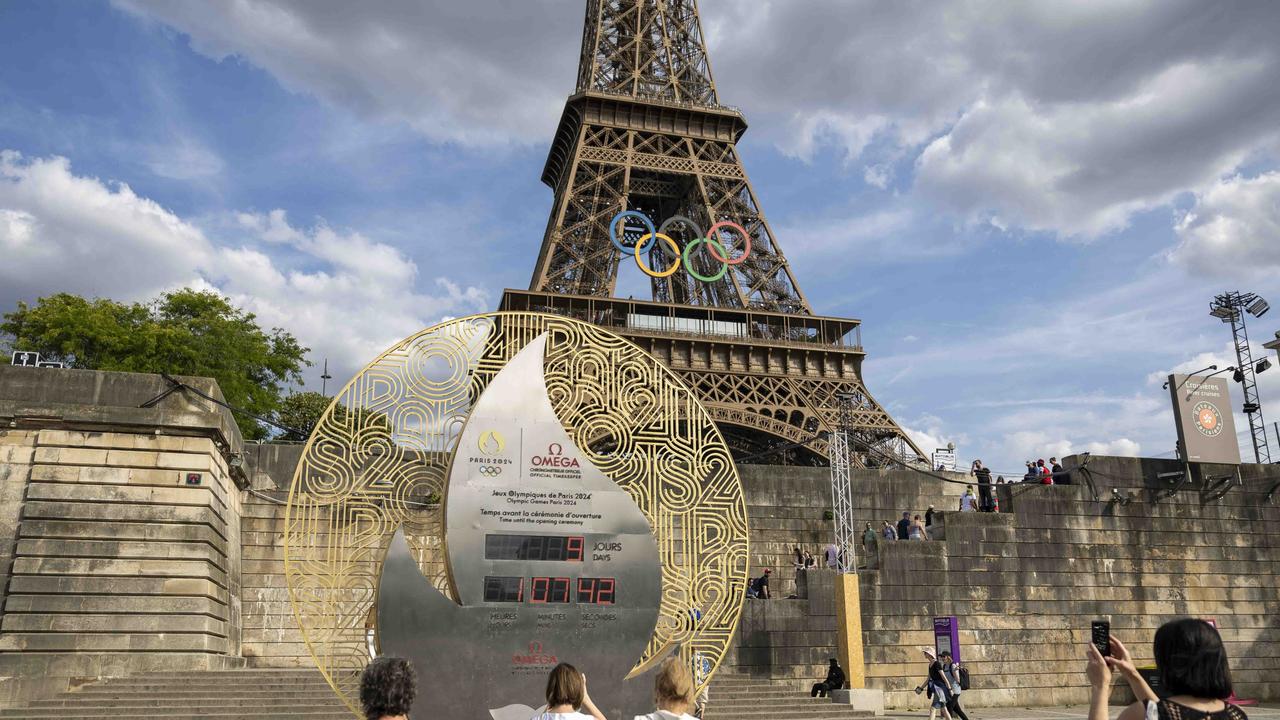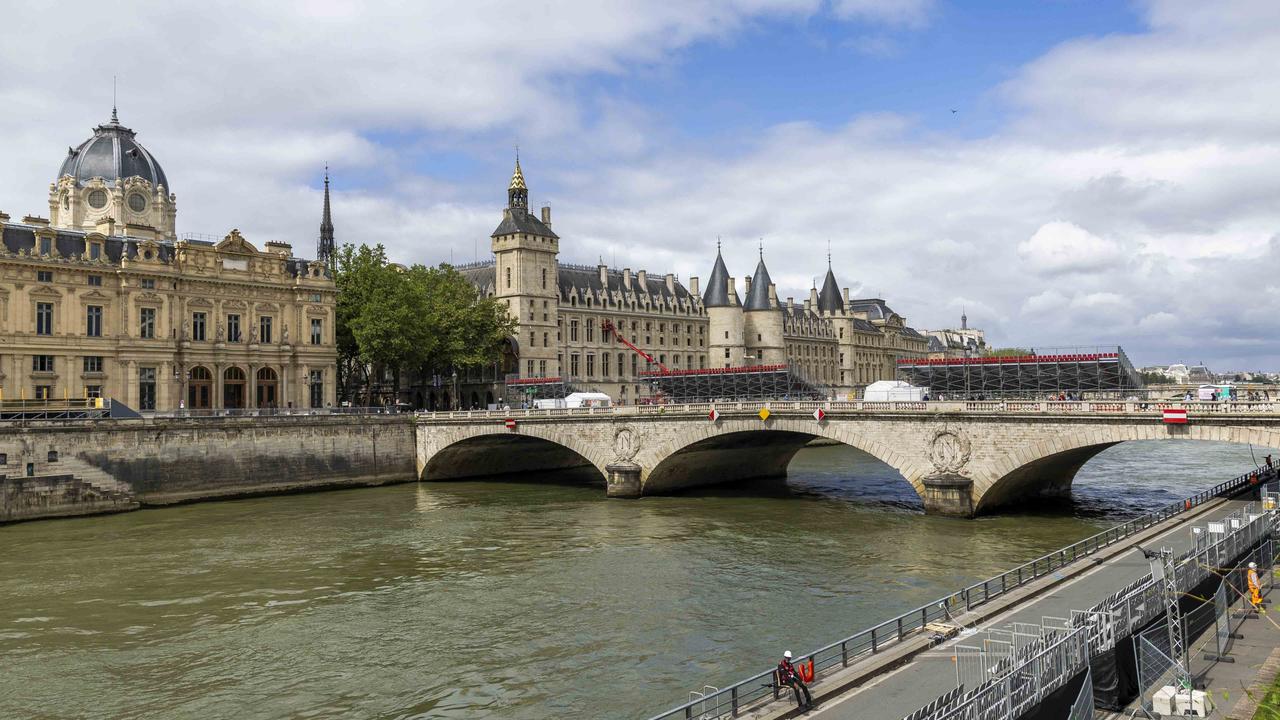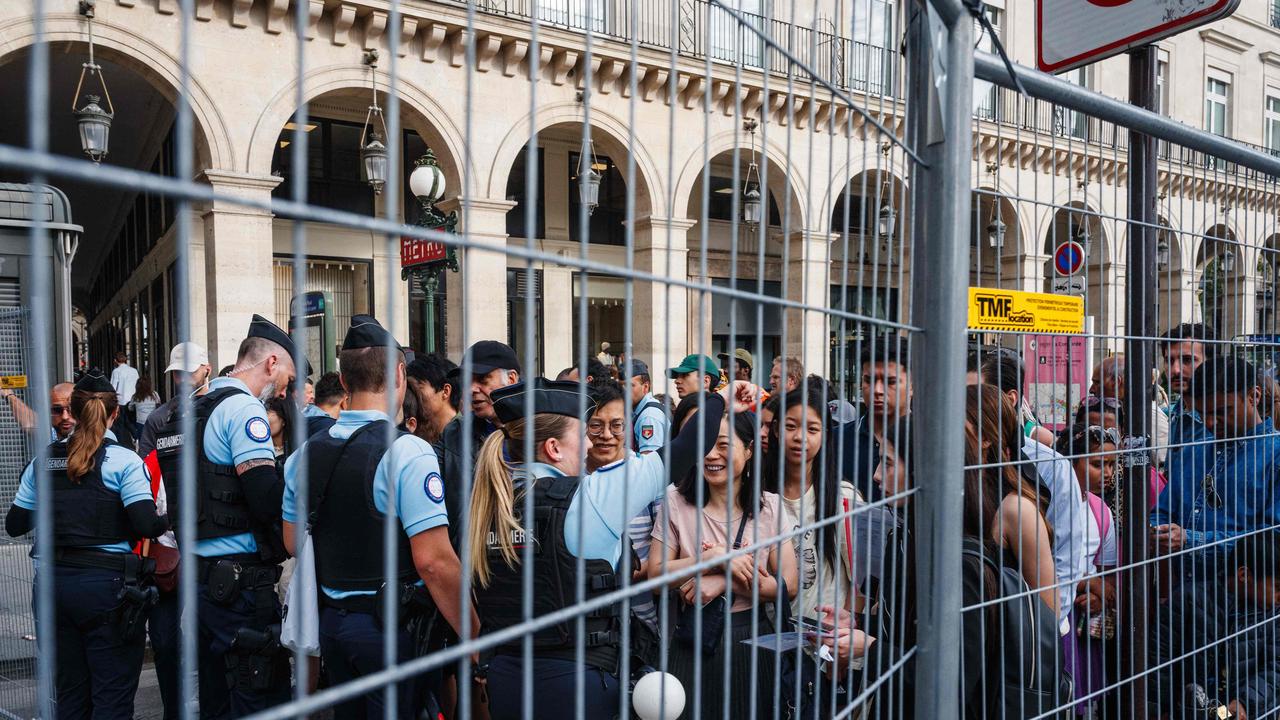
This article is more than
1 year old
The opening ceremony of the Paris Olympics has sparked renewed controversy for the event a week out from the Games kicking off.
The Paris Olympics opening ceremony has been thrown into chaos after performers threatened to go on strike a week out from the beginning of the event.
A French performing artists union announced plans for a strike coinciding with the opening ceremony of the Olympic Games in Paris, protesting “outrageous disparities in treatment” between performers recruited for the spectacle.
Watch selected NRL, AFL, SSN games plus every F1 qualifying session and race live in 4K on Kayo. New to Kayo? Start Your Free Trial today.
“We regret to have to announce filing a strike notice for the show on July 26 as well as for the upcoming rehearsals for the opening ceremony for the Paralympic Games” on August 28, the union said in a statement.
It said it had “alerted” Paname24, the executive producer of the ceremonies, several times about contractual practices not in accordance with the collective agreement.
“We also highlighted outrageous disparities in treatment as well as an absence of social dialogue during preparations for the ceremonies,” the union added.
Asked by AFP, a member of the SFA-CGT union suggested that around “250 to 300 professional dancers” of the 3,000 signed up for the Olympics “were recruited under shameful (financial) conditions”.

“Why are some non-Parisian artists being paid and housed, when the majority of them — the most precarious — won’t be, even though they have the same employment contracts,” the union said.
Some 3000 dancers, musicians and actors will take to the banks of the river Seine and its bridges as part of the ceremony which will carry athletes along a six-kilometre (four mile) route, the first time a summer Games has begun outside the main stadium.
The Daily Mail reported the pay rates for performers range from around £50 ($A96) to £1400 ($A2700).
Hundreds more volunteers will also be on duty throughout the evening.
The performers union is part of the Confederation of General Workers (CGT) and has filed a strike notice for the entire Olympics and Paralympics.
Police trade unionists are reportedly being given bonuses of up to £1700 ($A3280) to ensure they work during the Olympics.
It’s just the latest crisis to hit organisers who are already dealing with security and environmental issues.
French security forces began locking down large parts of central Paris on Thursday ahead of the opening ceremony.
Anyone wanting to enter the highest-security “grey zone” along both banks of the Seine, such as residents or tourists with hotel reservations in the area, will need a security pass in the form of a QR code.
With the opening ceremony just eight days away, the City of Light is transforming ahead of the Games when around 10 million spectators are expected Temporary sports stadiums have sprung up at popular locations such as the Eiffel Tower, the Invalides or the Place de la Concorde, while new Olympic VIP lanes are the latest traffic-snarling addition.
“We’re entering a very operational phase of hosting the world’s biggest event,” Interior Minister Gerald Darmanin told reporters on Wednesday as he outlined the security measures by the Seine.
Many central Metro stations were also closed on Thursday until the day after the opening ceremony, which will see 6,000-7,000 athletes sail down the Seine on around a hundred barges and river boats.


It will be the first time a Summer Olympics has opened outside the main athletics stadium, with up to 500,000 people set to watch in person from stands, on the river banks and from the overlooking apartments.
But it’s also been a logistical nightmare for police with around 45,000 officers set to be on duty for the July 26 parade, assisted by 1,900 foreign police, as well as 10,000 French soldiers and thousands of private security agents.
The installation of tens of thousands of metal security barriers all along the opening ceremony route in Paris and around the temporary venues has outraged some Parisians, who feel closed in or find their routes on foot or by bike blocked.
“It’s a bit like being in Planet of the Apes,” Aissa Yago, who lives on the Ile Saint Louis in central Paris, told AFP this week from behind a barrier.
“All they need to do is throw us some peanuts.”
The Seine has had its own issues with the government spending 1.4 billion euros ($A2.2 billion) to prevent sewage leaks into the waterway and make the waterway swimmable for the first time in over a century.
Having failed tests in the lead up, recently it has been deemed within limits, leading to Paris mayor Anne Hidalgo swimming in the waters on Wednesday.